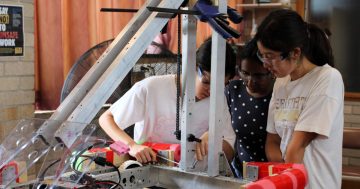As companies seek to attract and retain employees, Chaitali Mukherjee and Julia Lamm* say they need to focus more on understanding workers’ individual purpose.
 We live in different corners of the world, in India and the United States, where we work to help companies in our respective countries assess and redesign their talent strategies.
We live in different corners of the world, in India and the United States, where we work to help companies in our respective countries assess and redesign their talent strategies.
We live and work in vastly different economic, social, and cultural contexts.
And so, you might think the client challenges we come across would be quite different.
But, over the years, we’ve been amazed by the similarity of the issues we encounter with clients, whether in Bangor or Bangalore.
More recently, as the impacts of the COVID-19 pandemic have continued to play out, these commonalities have converged even more.
For example, we’re both seeing mass employee attrition—on a scale not evident for a very long time.
PwC US’s recent pulse survey of executive leadership found that 88 per cent of employers are experiencing turnover that is higher than normal, and 65 per cent of employees are looking for jobs.
According to the US Bureau of Labor Statistics, 4.4 million Americans quit their jobs in February.
Many Indian IT firms are reporting soaring attrition rates, in some cases double normal levels.
Similar levels of employee mobility are arising in countries across the globe, leaving companies struggling to fill roles.
The pandemic has played a big part, heaping long hours, stress, and isolation onto the workforce, and, unfortunately, sometimes causing burnout.
In addition, it has fractured the connection between employees and employers.
If you’ve never been in the office where you’re supposed to bond with colleagues, work relationships can feel transactional—and you’re more likely to jump ship for a better offer.
The good news? Businesses can take proactive steps to fight the “great resignation.” They can work harder to be truly flexible, emphasize the connection between work and societal purpose, and expand the conversation surrounding career paths.
These efforts will ensure that employees feel they are valued.
They all point to thinking of employees not as workers but as whole human beings, with their own individual purpose that the business itself needs to reflect and support.
Redefining flexibility
In the last few years, many companies have instituted hybrid work arrangements, allowing for more time off when needed—whether to care for sick family members or simply take a break.
But many are also narrowly defining flexibility as the number of days workers are required to spend in the office and making regimented requests that everyone come in for that specific number of days, regardless of their role.
A better approach is to rethink how and why teams come together instead of mandating a set number of days.
Definitions of flexibility may vary widely.
In India, for example, employees are focused on workplace design and the ability to continue to work remotely.
Because of these variations, companies need to extend their vision when it comes to flexibility.
People are seeking flexibility not simply in the way they are rewarded or how frequently they come to the office.
Rather, they are seeking flexibility in how their current role aligns with longer-term career aspirations, short-term life goals, passions outside of work, and their sense of belonging.
Connecting work and purpose
Around the world, people seek employers whose purpose mirrors their own values.
A strong commitment to environmental, social, and governance (ESG) issues is now seen as a baseline requirement.
But purpose needs to be a two-way street.
Because every employee’s personal purpose is unique, an organisation needs to be sufficiently flexible to accommodate multiple purposes.
Take the hiring process.
We’re seeing more and more clients’ hiring discussions and decisions take into account a candidate’s life goals and desired experiences, and how the organisation—and its purpose—can help the individual achieve them.
Instead of asking, “What can you do for us at work?” employers are asking, “What do you want out of life?” Companies are reengineering the recruiting process to place the candidate at the center and to train managers in the ability to share genuine, compelling stories about the employee experience and meaningful work.
For their part, potential recruits, even those keen on joining an organisation, are no longer shy about saying that they’re not looking to spend the rest of their career at the organisation they’re about to join.
One of us recently interviewed a 24-year-old potential joiner—who openly stated that he wanted to be a CEO elsewhere by 34 and to retire at 40.
Accordingly, he was seeking skills and experiences that would provide him with a stepping-stone toward that goal.
Though he was attracted by PwC’s purpose, he wanted us to respect and accommodate his own purpose in return.
Because we did so, our recruitment was successful.
Companies can also demonstrate their purpose by inviting candidates to get to know their business and culture more intimately during the hiring process.
When one of our clients, a tech startup, was seeking to hire a brilliant individual, it didn’t just hold formal interviews.
Rather, the startup enabled him to meet with potential future colleagues, business partners, and distribution channels to get a feel for how they operate and deliver on their promise.
It worked.
After three weeks, the candidate accepted the offer.
Creating clusters of experiences
There’s a broader redefinition of purpose that’s underway both for organisations and individuals.
Today, people don’t have just one single career in a lifetime but five or six—and their goals and purpose vary at each stage.
At the same time, organisations can’t address or engage with the broad range of stakeholders they deal with through just one single purpose.
In combination, these shifts are ushering in the concept of purpose as a “cluster” of goals and experiences, with different aspects resonating with different stakeholders (including employees) at different times.
The same cluster concept holds true for career paths.
It is vital to expand the conversation about the varied, unique options people have to fulfill their goals.
Companies must strive to make those options more transparent, more individualized, and more flexible, and less linear.
For today’s employees, the point of a career path is not necessarily to climb a ladder with a particular end-state in mind but to gain experience and pursue the individual’s purpose—a purpose that may shift and evolve over time.
To that end, it may make sense for organisations to create paths that allow employees to move within and across, and even outside, an organisation—not just up—to achieve their goals.
The mantra that people are a business’s greatest asset has never been truer than it is today.
As organisations face up to the challenge of the “great resignation,” it’s time to protect and nurture that asset.
The result will be hiring and career conversations that are more nuanced, more personalized—and more likely to produce the mutual alignment of values that will keep employees on board.
*Chaitali Mukherjee is People and Organisation Leader at PwC India. Based in Gurgaon, she is a partner with PwC India. Julia Lamm works with clients as part of PwC’s Workforce Transformation practice. Based in New York, she is a principal with PwC US.
This article first appeared at strategy-business.com.











